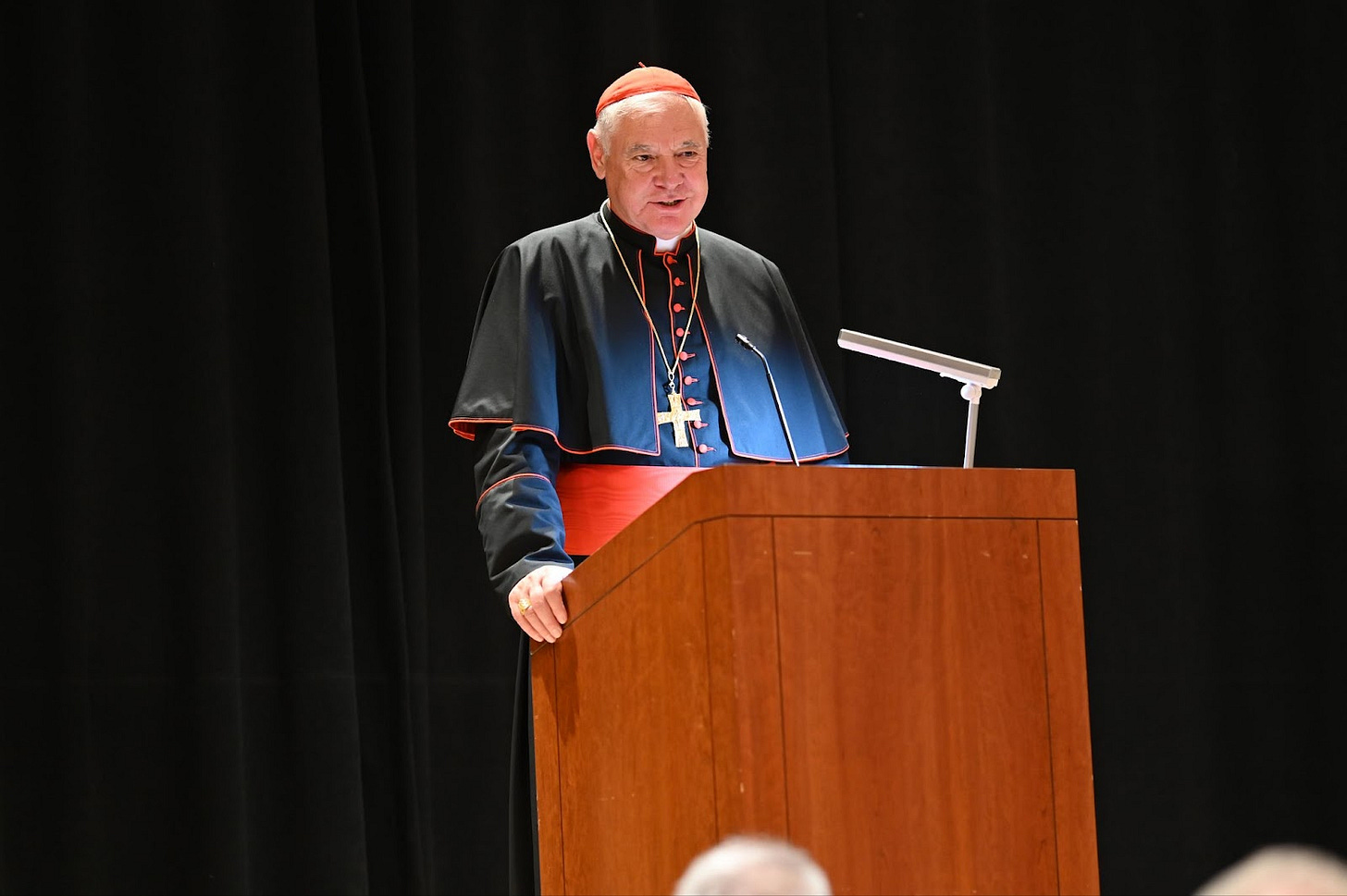'A prophetic mission for human unity' - Cardinal Müller on faith and dignity
A Pillar Interview
Cardinal Gerhard Müller, former prefect of the Congregation for the Doctrine of the Faith, gave a lecture last month at the University of Notre Dame, on the subject of “The Popes as Guardians of Human Dignity.” The lecture considered how Catholics might advance and defend an authe…

